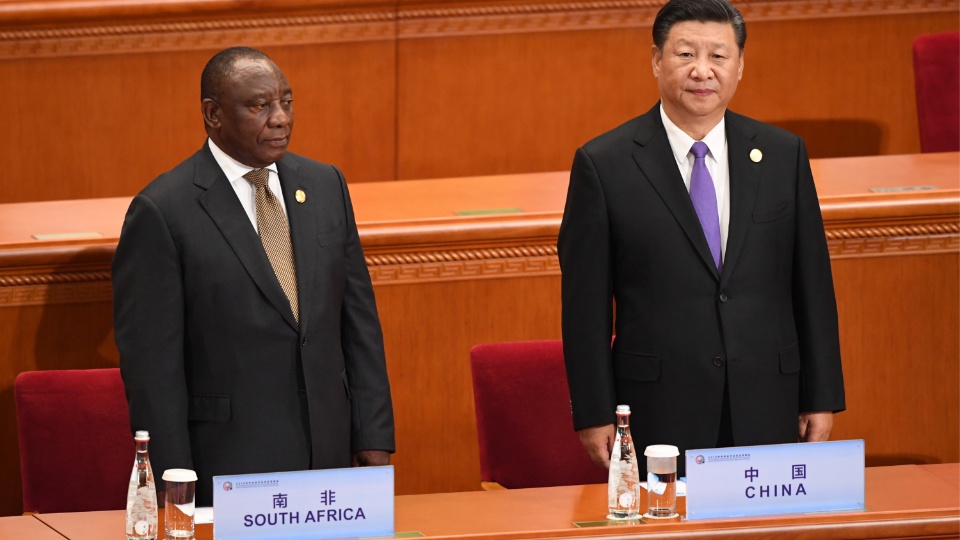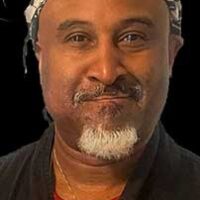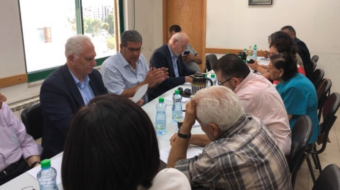
Separately, China and a group of nations led by South Africa are pushing Russia and Ukraine to begin peace negotiations. The U.S. and many Western European nations, meanwhile, continue pouring more arms into the conflict.
Russian President Vladimir Putin and Ukrainian President Volodymyr Zelensky have agreed to separate meetings with a delegation of leaders from six African countries to discuss a possible plan to end the war in Ukraine, South Africa’s president said earlier this week.
President Cyril Ramaphosa said he spoke with both leaders by phone over the weekend, with each agreeing to host an “African leaders’ peace mission” in Moscow and Kiev respectively. Ramaphosa said: “Principal to our discussions are efforts to find a peaceful resolution to the devastating conflict in Ukraine.”
The leaders of Zambia, Senegal, Republic of Congo, Uganda, and Egypt would make up the delegation along with himself, Ramaphosa said in a statement. The Russian and Ukrainian presidents both gave him the go-ahead to “commence the preparations,” the South African president said.
Four of those six African countries—South Africa, Republic of Congo, Senegal, and Uganda—abstained from a United Nations vote last year on condemning Russia’s invasion. Zambia and Egypt voted in favor of the motion.
Ramaphosa did not give a time frame or outline any parameters for the possible peace talks. United Nations Secretary-General Antonio Guterres had welcomed the initiative, President Ramaphosa said.
U.N. spokesman Stephane Dujarric said: “We are in favor of any initiative that could lead us to a peace in line with the U.N. Charter, in line with international law, and in line with General Assembly resolutions,” Dujarric said.
The announcement came days after the U.S. ambassador to South Africa accused the country of siding with Russia in the war in Ukraine and even providing weapons to help Moscow. Last week, Ambassador Reuben Brigety said that weapons and ammunition were loaded onto a Russian-flagged cargo ship at a South African naval base in December and taken to Russia.
South Africa has denied sending any weapons to Russia and has said the matter is under investigation.
The country has taken a non-aligned position on the conflict in Ukraine, though it has strong historical ties to Russia—the Soviet Union supported South Africa’s now-ruling African National Congress party when it was seeking to overthrow the racist apartheid regime.
China is also engaged in efforts to secure peace in Ukraine and this week dispatched a senior envoy to Europe to build on the peace plan they put forward in February. The country said its envoy met Zelensky during talks held in Kiev earlier this week.
Foreign Ministry spokesperson Wang Wenbin said the meeting came amid discussions between envoy Li Hui and Ukraine’s foreign minister and other government officials.
“There is no remedy to resolve the crisis,” Wang told reporters. “All parties should create favorable conditions and accumulate mutual trust for the political settlement.”
The visit followed an earlier phone call between Zelensky and Chinese President Xi Jinping.

Over two days, Li and Ukrainian Foreign Minister Dmytro Kuleba discussed “ways to stop Russian aggression,” the Ukrainian Foreign Ministry said in a statement.
Kuleba briefed Li, a former Chinese ambassador to Moscow, “about the principles of restoring a stable and just peace based on respect for the sovereignty and territorial integrity of Ukraine.”
Beijing released a proposed peace plan in February, but the United States, its allies, and Ukraine gave it a muted response, insisting Putin must withdraw his forces before any ceasefire or negotiations can take place.
The Chinese Foreign Ministry said Li will also visit Poland, France, and Germany, but did not give details of his schedule.
Neither the U.S. nor the U.N. have made any obvious steps towards finding a peaceful solution to the conflict.
Instead, on Thursday, the Pentagon announced that an “accounting error” had miscalculated how much weaponry the U.S. has sent to Ukraine thus far, meaning an additional $3 billion is now available for exporting missiles and other hardware—in addition to the $37 billion already spent.
The error was supposedly caused by officials overvaluing some of the weapons systems sent to Ukraine, using the value of money it would cost to replace an item completely rather than the current value of the weapon.
The Pentagon is under increased pressure by Congress to show accountability for the billions it has sent in weapons, ammunition, and equipment to Ukraine as some lawmakers question whether that level of support should continue.
This article features reporting from Morning Star and Associated Press.
We hope you appreciated this article. At People’s World, we believe news and information should be free and accessible to all, but we need your help. Our journalism is free of corporate influence and paywalls because we are totally reader-supported. Only you, our readers and supporters, make this possible. If you enjoy reading People’s World and the stories we bring you, please support our work by donating or becoming a monthly sustainer today. Thank you!












Comments